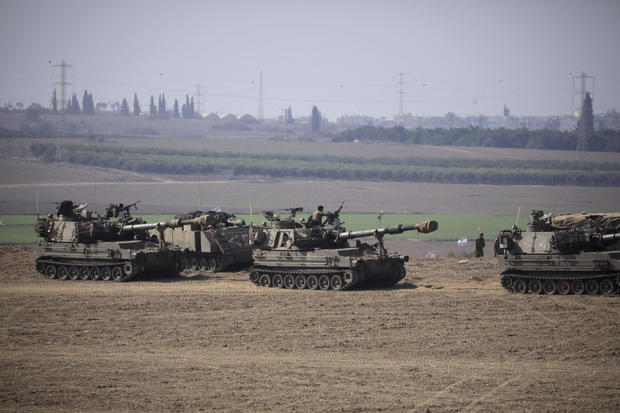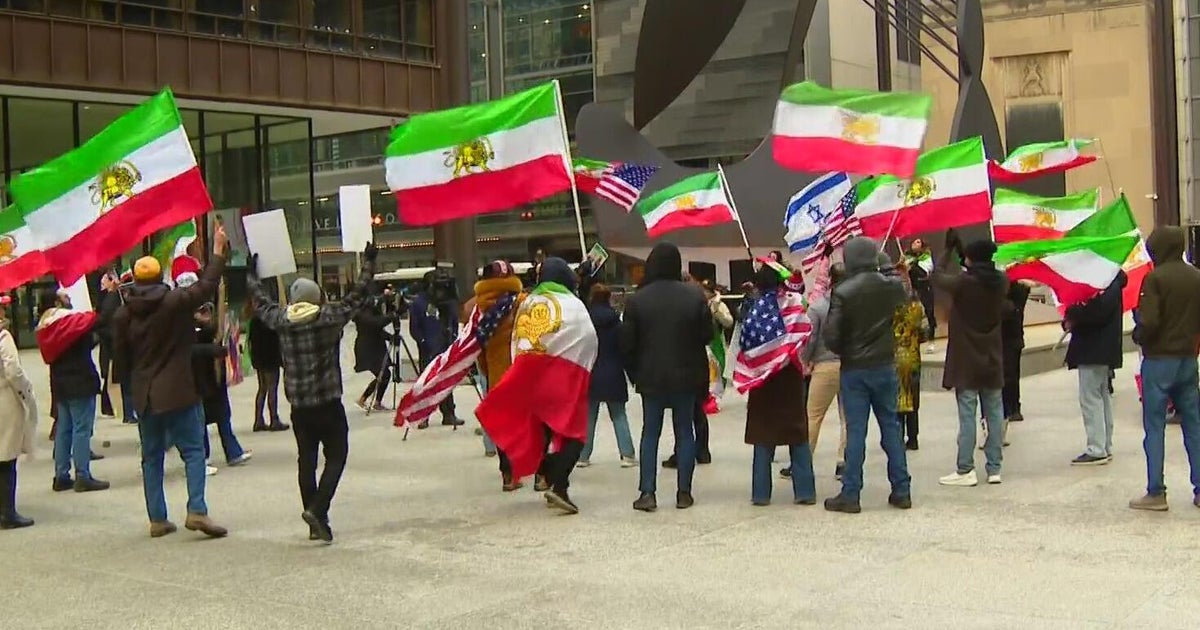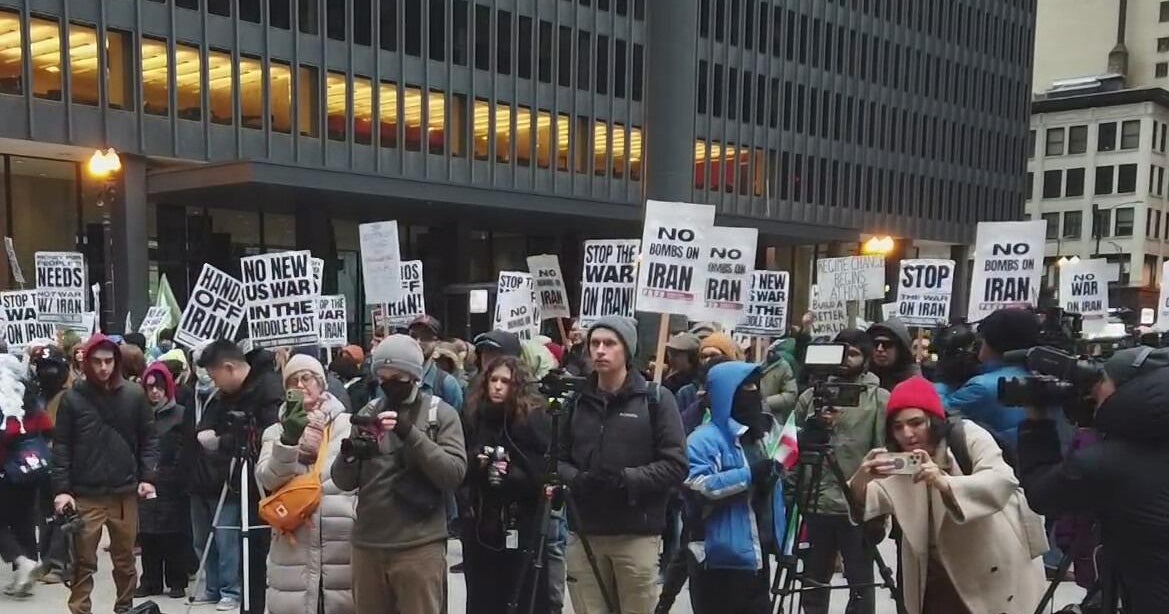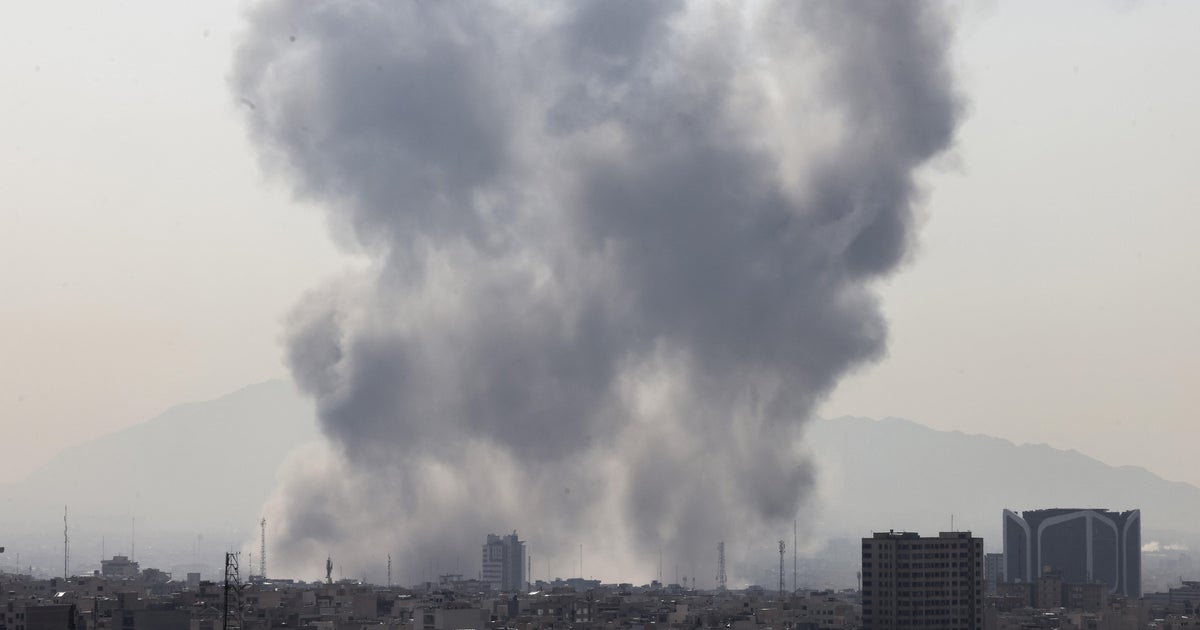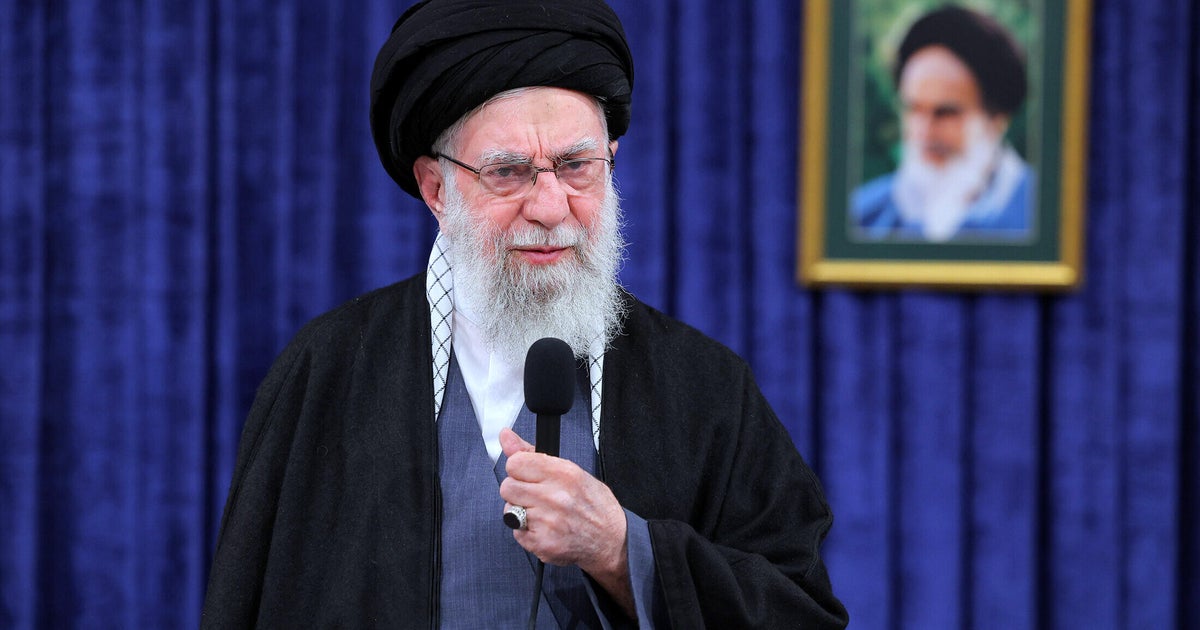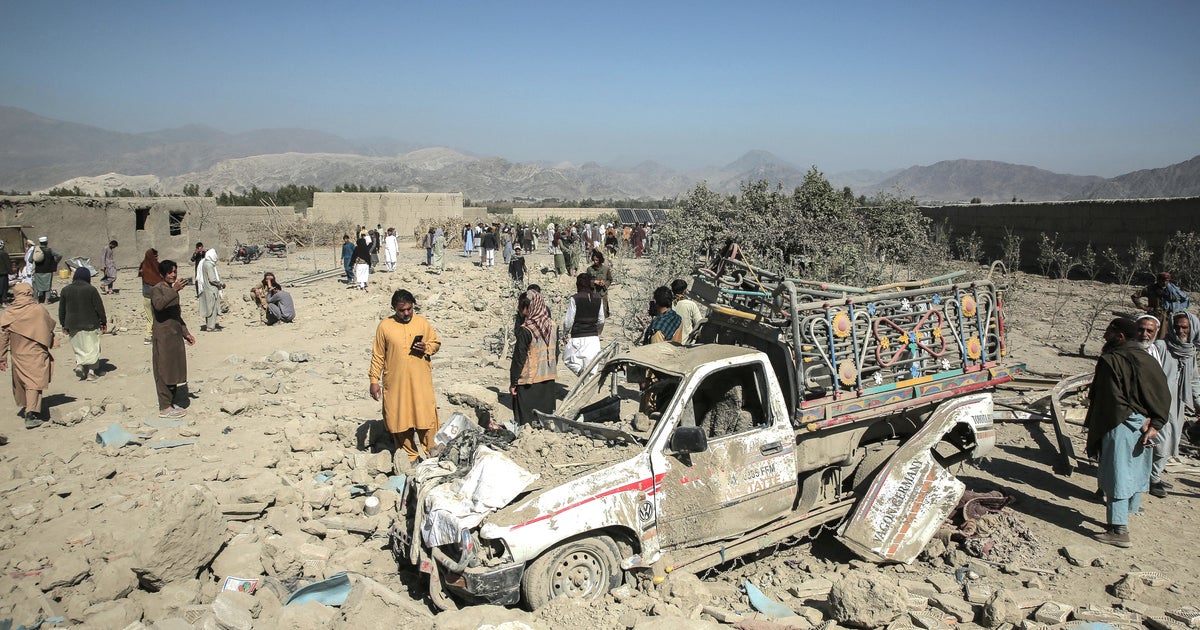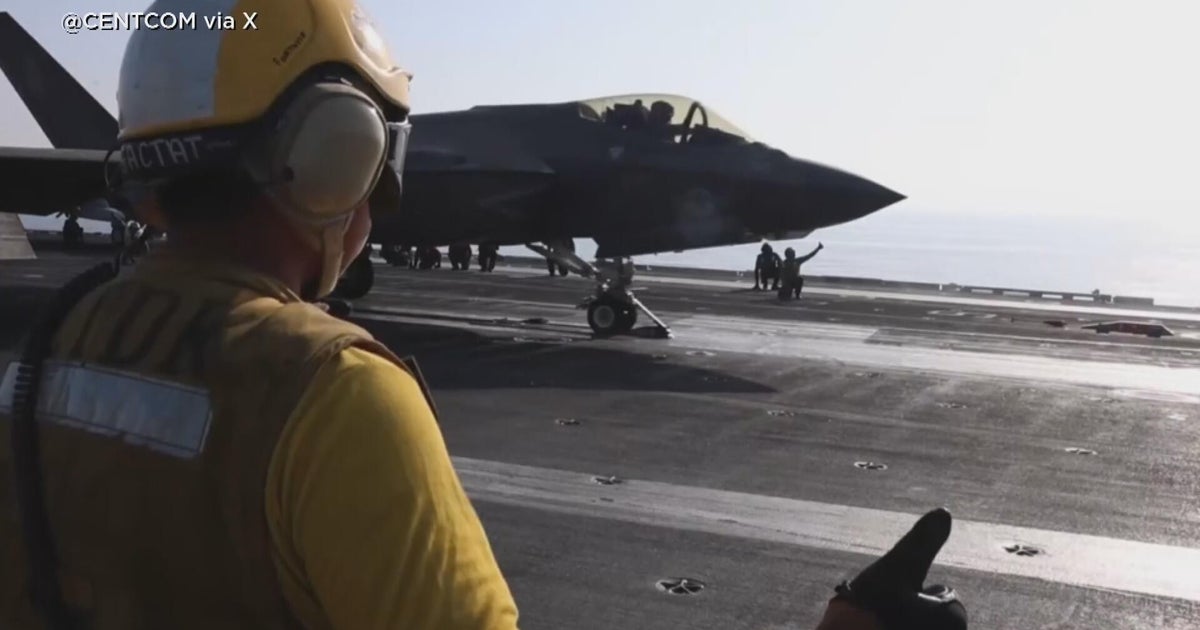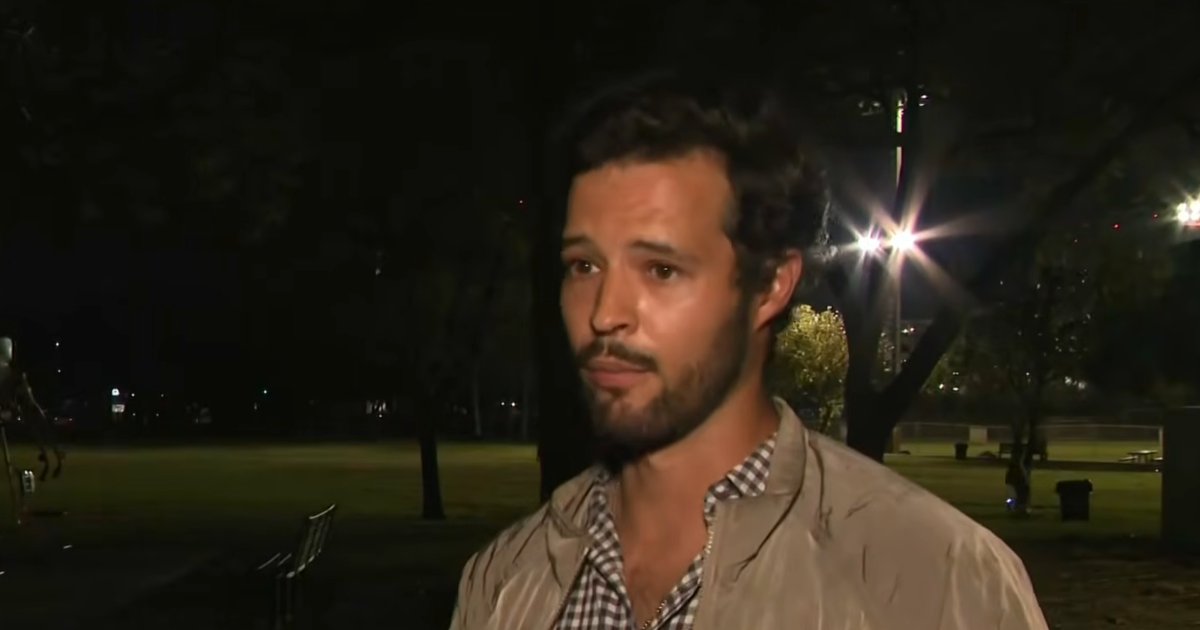Israel tightens encirclement of Gaza City as Blinken urges more civilian protection — or else there will be "no partners for peace"
U.S. Secretary of State Antony Blinken urged Israel on Friday to ensure more humanitarian aid and do more to protect Palestinian civilians in Gaza, or else there will be "no partners for peace." Meanwhile, Israel warned that it was on high alert for attacks on its northern border with Lebanon as fears grew that the conflict could widen.
Israeli troops tightened their encirclement of Gaza City, the focus of their campaign to crush the enclave's ruling Hamas militants, who launched a brutal attack on Israeli communities that started the war.
But ever since that Oct. 7 assault, there have been concerns the conflict could ignite fighting on other fronts, and Israel and the Iranian-backed militant group Hezbollah have repeatedly traded fire along the Lebanon border.
In his first public speech since the war began, Hezbollah leader Hassan Nasrallah said his group had "entered the battle" with the past weeks' unprecedented cross-border fighting. "We will not be limited to this," he said, suggesting escalation was possible. Still, Nasrallah stopped short of announcing that Hezbollah is fully engaging in the war.
Blinken, on his third trip to Israel since the war began, reiterated U.S. support for Israel in the war, saying it has the right to defend itself. But he said a "humanitarian pause" was needed to boost aid deliveries to Palestinian civilians amid growing alarm over the humanitarian crisis in Gaza.
"We believe that each of these efforts would be facilitated by humanitarian pauses, by arrangements on the ground that increase security for civilians and permit the more effective and sustained delivery of humanitarian assistance," Blinken told journalists.
And he reiterated Washington's long-standing support for the eventual recognition of a Palestinian state: "Two states for two peoples. Again, that is the only way to ensure lasting security for a Jewish and democratic Israel."
After meeting Blinken, Israeli Prime Minister Benjamin Netanyahu said Israel "refuses a temporary cease-fire that doesn't include a return of our hostages," referring to some 240 people Hamas abducted during its attack. He said Israel was pressing ahead with its military offensive with "all of its power."
Blinken said there had to be a substantial and immediate increase in humanitarian aid to Gaza, and said, "We need to do more to protect Palestinian civilians."
"We've been clear that as Israel conducts his campaign to defeat Hamas, how it does so matters," Blinken said at a news conference. "It matters because it's the right and lawful thing to do. It matters because failure to do so plays into the hands of Hamas and other terror groups. There will be no partners for peace if they're consumed by humanitarian catastrophe and alienated by any perceived indifference to their plight."
"High state of readiness"
Hezbollah, an ally of Hamas, attacked Israeli military positions in northern Israel with drones, mortar fire and suicide drones on Thursday. The Israeli military said it retaliated with warplanes and helicopter gunships, and spokesman Rear Adm. Daniel Hagari said civilians were wounded in the Hezbollah attacks.
"We are in a high state of readiness in the north, in a very high state of alert, to respond to any event today and in coming days," he said.
Blinken said the U.S., which has deployed aircraft carriers and other forces in the eastern Mediterranean, was committed to ensuring that no "second or third front" opens in the conflict, referring to Hezbollah.
In his speech, Nasrallah said his militia is not deterred by U.S. warnings, saying: "Your fleets in the Mediterranean ... will not scare us."
A war with Hezbollah would be devastating for both Israel and Lebanon. Hezbollah is much stronger than Hamas, with an arsenal of some 150,000 rockets and missiles, some believed to be precision-guided weapons capable of striking deep inside Israel.
Israel has promised to unleash vast destruction in Lebanon if all-out war erupts, accusing Hezbollah of hiding its military installation in the midst of residential areas. The two enemies fought an inconclusive monthlong war in 2006. Renewed fighting could also risk drawing Iran, which backs both Hamas and Hezbollah, into the conflict.
More than 9,200 Palestinians have been killed in Gaza so far, mostly women and minors, and more than 23,000 people have been wounded, the Gaza Health Ministry said, without providing a breakdown between civilians and fighters.
More than 1,400 people have died on the Israeli side, mainly civilians killed during Hamas' initial attack, when some 240 people were also taken hostage. Some 5,400 have also been injured.
Twenty-four Israeli soldiers have been killed in Gaza since the start of the ground operation. Since the start of the war, seven Israeli soldiers and a civilian have been killed in different incidents along Israel's border with Lebanon.
As American officials have before, Blinken pledged unwavering support for Israel and its right to defend itself.
"We stand strongly for the proposition that Israel has not only the right but the obligation to defend itself, and to make sure that October 7 should never happen again," said Blinken, who also plans to visit Amman, Jordan. It follows President Joe Biden's suggestion for a humanitarian "pause" in the fighting. The aim would be to let in aid for Palestinians and let out more Palestinians who hold foreign passports and wounded.
Around 800 people left Gaza over the past two days — the first time people departed the besieged territory other than four hostages released by Hamas and another rescued by Israeli forces.
Blinken first held talks with Netanyahu behind closed doors before starting wider discussions with the leader and his War Cabinet and meeting with President Isaac Herzog.
Hundreds of Americans remain stranded in Gaza
More than 100 U.S. citizens and their families left Gaza on Thursday with the assistance of the U.S. Embassy in Cairo, White House press secretary Karine Jean-Pierre told reporters Friday. She said the White House expects more to be evacuated in the coming days. Two U.S. officials later told CBS News that about 130 Americans had checked in with the embassy in Cairo after departing southern Gaza into Egypt through the Rafah crossing.
A senior Biden Administration official told CBS News Friday that about 1,000 Americans and their families were believed to be in Gaza when the war broke out, including locally employed staff.
The official said that complicating the evacuation process over the past few weeks was that Hamas was blocking the evacuations of foreign nationals unless injured Palestinians also be allowed to leave. However, a third of those injured Palestinians that were put forward for potential evacuation were identified as members of Hamas, the official said, which was "unacceptable" to the U.S., Egypt and Israel.
"Nothing will stop us"
More than 3,700 Palestinian children have been killed in 25 days of fighting, according to the Health Ministry in Hamas-run Gaza. Bombardment has driven more than half the territory's 2.3 million people from their homes. Food, water and fuel are running low under Israel's siege, and overwhelmed hospitals warn they are on the verge of collapse.
CBS News correspondent Ramy Inocencio reported Friday that in Gaza, Israeli shelling hasn't stopped for several days around the enclave's second largest hospital, Al Quds, says the Palestinian Red Crescent Society.
Further south in central Gaza, survivors are digging victims out from an Israeli airstrike on the Bureij refugee camp that an estimated 45,000 Palestinian call home, Inocencio reported. At least 15 people died, according to Gaza's civil defense, which is run by Hamas.
Video showed a father sitting next to his injured sons, shouting an pointing to his children: "Film to all of the world, here are the ones firing the rockets, film to all the people. Here they are, here they are, America. Here they are, Israel. They are children."
Israel has allowed more than 260 trucks carrying food and medicine into Gaza, but aid workers say it's not nearly enough. Israeli authorities have refused to allow fuel in, saying Hamas is hoarding fuel for military use and would steal new supplies.
White House national security spokesman John Kirby said the U.S. was not advocating for a general cease-fire but a "temporary, localized" pause.
Israel has not openly responded to Mr. Biden's suggestion. But Netanyahu, who has previously ruled out a cease-fire, said Thursday: "We are advancing. … Nothing will stop us." He vowed to destroy Hamas rule in the Gaza Strip.
Israel and the U.S. seem to have no clear plan for what would come next if Hamas rule in Gaza is brought down — a key question on Blinken's agenda during the visit, according to the State Department.
Meanwhile, military officials said Israeli forces have now completely encircled Gaza City, a densely packed cluster of neighborhoods that Israel says is the center of Hamas military infrastructure and includes a vast network of underground tunnels, bunkers and command centers.
Israeli forces are "fighting in a built-up, dense, complex area," said the military's chief of staff, Herzi Halevy.
Hagari, the military spokesperson, said Israeli forces were in "face to face" battles with militants, calling in airstrikes and shelling when needed. He said they were inflicting heavy losses on Hamas fighters and destroying their infrastructure with engineering equipment.
Hamas' military wing said early Friday that its fighters battled Israeli troops in several areas in Gaza and claimed they killed four soldiers on the northern edge of the city of Beit Lahiya. It also claimed to have destroyed several tanks with locally made anti-tank rockets.
Neither the reports from Israel nor Hamas could be independently verified.
Casualties on both sides were expected to rise as Israeli troops advance toward the dense residential neighborhoods of Gaza City. Israel has warned residents to immediately evacuate the Shati refugee camp, which borders Gaza City's center.
But hundreds of thousands of Palestinians remain in the path of fighting in northern Gaza, despite Israel's repeated calls for them to flee. Many have crowded into U.N. facilities, hoping for safety.
Still, four U.N. schools-turned-shelter in northern Gaza and Bureij were hit in recent days, killing 24 people, according to Philippe Lazzarini, general-secretary of the U.N. agency for Palestinian refugees, known as UNRWA.
In the occupied West Bank overnight, Israeli forces killed seven Palestinians in different places and arrested many more, according to the Israeli military and Palestinian health officials.
